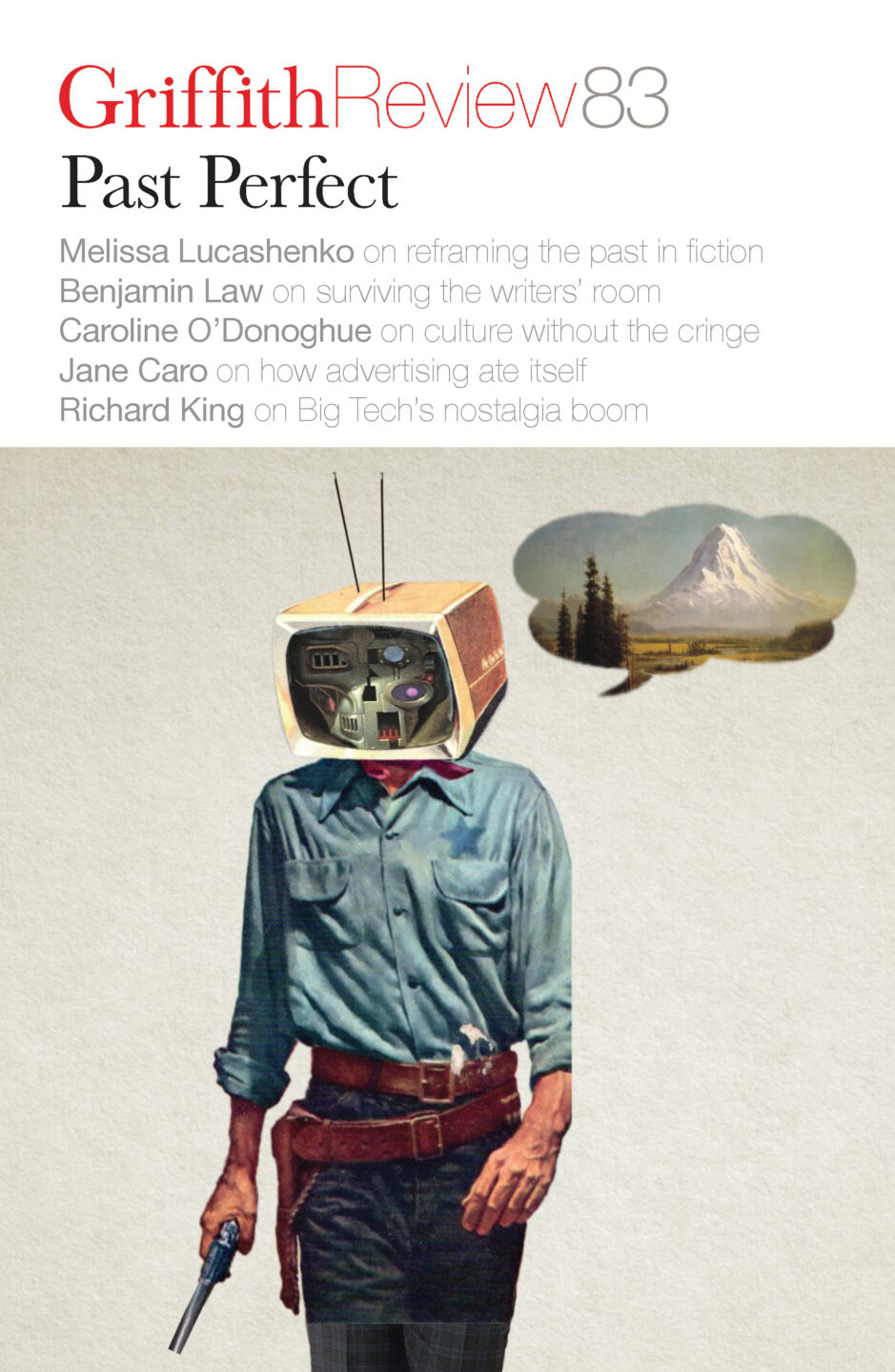Featured in

- Published 20240206
- ISBN: 978-1-922212-92-4
- Extent: 204pp
- Paperback, ePub, PDF, Kindle compatible


Already a subscriber? Sign in here
If you are an educator or student wishing to access content for study purposes please contact us at griffithreview@griffith.edu.au
Share article
About the author

Jake Dean
Jake Dean’s short fiction has been published in several journals and anthologies across Australia and abroad. He has also been recognised with multiple awards,...
More from this edition

Mildew on the whiteness of Hölderlin
Poetry Mildew on the whiteness of Hölderlin’s shoulders, his phantom limb reaching towards an ideal he is sure he’ll reach. When the snow comes I am not even sure...

Threshold
PoetryWhat is the voice of one who has died if no one listened to what remained unspoken? It no longer matters.

Escaping the frame
In ConversationAll my work as a writer and activist over the last fifty years has comprised various attempts at what I call ‘escaping the frame of European colonisation, European story and European ways of telling story’.